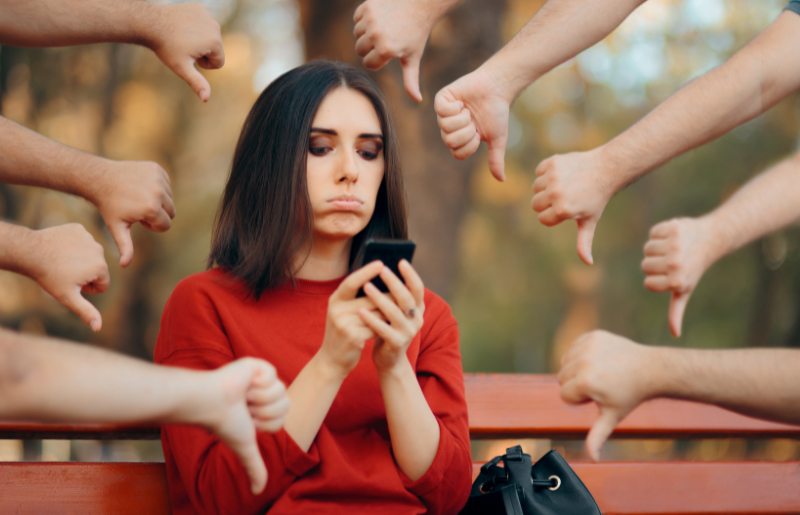The Influencers' Impact: Navigating Body Image in the Age of Social Media
Did you know that 1 in 6 Singaporean adults are at risk of experiencing body image anxiety? Social media platforms, especially the visually-focused ones like TikTok and Instagram, have a significant association with body image concerns. Spending over 3 hours on these platforms has been linked to anxiety related to body image. Such concerns can lead to lower body satisfaction, increased appearance comparisons, drive for thinness, self-objectification, body surveillance, and even desire for cosmetic surgery. In this blog post, we’ll dive into the influence of social media influencers, the challenges they pose, and provide practical tips to help you navigate and foster a positive body image.

The Impact of Visual Social Media Platforms:
Visual platforms offer a curated collection of posed, filtered, and edited images of celebrities and peers, promoting unrealistic body ideals and lifestyles. Social media has become a highlight reel, showcasing people’s best angles and noteworthy moments. This constant stream of images fuels social comparison, contributing to higher levels of body image concerns among both men and women. Studies estimate that 20-40% of women and 10-30% of men feel dissatisfied with their bodies.
The Role of Influencers:
Influencers have a significant role in shaping beauty ideals and expectations on social media. With the normalization of apps like Facetune and filters that alter features, appearance has become closely linked to self-worth. The number of followers and likes often defines one’s perceived value. Many influencers heavily edit and manipulate their images to portray themselves in a specific light, creating false expectations for their followers. It’s important to note that plastic surgery procedures, such as Botox, Fillers, and Brazilian butt lift (BBL), have also become widely accessible but often go unnoticed. This creates a distorted reality, where users may not realize that the influencers they follow don’t actually look like their edited photos. For younger social media users, this can lead to unrealistic expectations and potentially harmful behaviors like disordered eating and negative body image.
The Rise of Body Positivity:
Fortunately, there has been a positive movement in recent years aimed at challenging societal beauty norms, celebrating diverse bodies, and promoting self-acceptance. Online communities centered around body positivity provide spaces for individuals to seek support and connection. Hashtags like #BodyPositivity have been associated with improved mood and body satisfaction, fostering a healthier mindset.
Practical Tips for Embracing Body Positivity:
To combat the negative impacts of social media on body image, consider the following strategies:
1. Awareness and Critical Thinking:
Develop awareness and critical thinking skills to recognize the potential negative effects of social media. Challenge idealized images and unrealistic beauty standards. By altering your mindset, you can navigate through the curated content more confidently.
2. Diversify Your Feed:
Be intentional about following accounts that promote body diversity, self-acceptance, and positive body image. Actively engage with uplifting content that counters the influence of idealized images. Surrounding yourself with diverse perspectives will help you develop a healthier perception of yourself.
3. Practicing Self-Care and Self-Compassion:
Prioritize self-care as a protective factor against the harmful effects of social media on body image. Engage in activities that focus on your overall well-being, such as exercise, mindfulness, and pursuing hobbies you enjoy. Practice self-compassion and recognize your worth beyond appearance, cultivating a positive body image from within.
4. Limiting Screen Time:
Set boundaries and time limits on your social media use to avoid constant exposure to idealized images. Designate specific times for social media engagement and prioritize real-life connections and experiences. By reducing screen time, you can create a healthier balance and minimize the negative impact on your body image.
5. Seek Support:
Build a support network of individuals who understand and discuss concerns related to negative body image anxiety. Surround yourself with people who promote body positivity and do not endorse harmful eating behaviors or unrealistic beauty ideals. Sharing your feelings and experiences with like-minded individuals can provide valuable support and guidance.
Conclusion:
In a world heavily influenced by social media, it is important to recognize the impact it can have on our body image and self-perception. By being aware, diversifying our social media feeds, practicing self-care and self-compassion, limiting screen time, and seeking support, we can navigate the influencer-dominated landscape and embrace a positive body image. Remember, your worth extends far beyond appearance, and celebrating diversity and self-acceptance are essential in the online space.
Written by Pachealth.